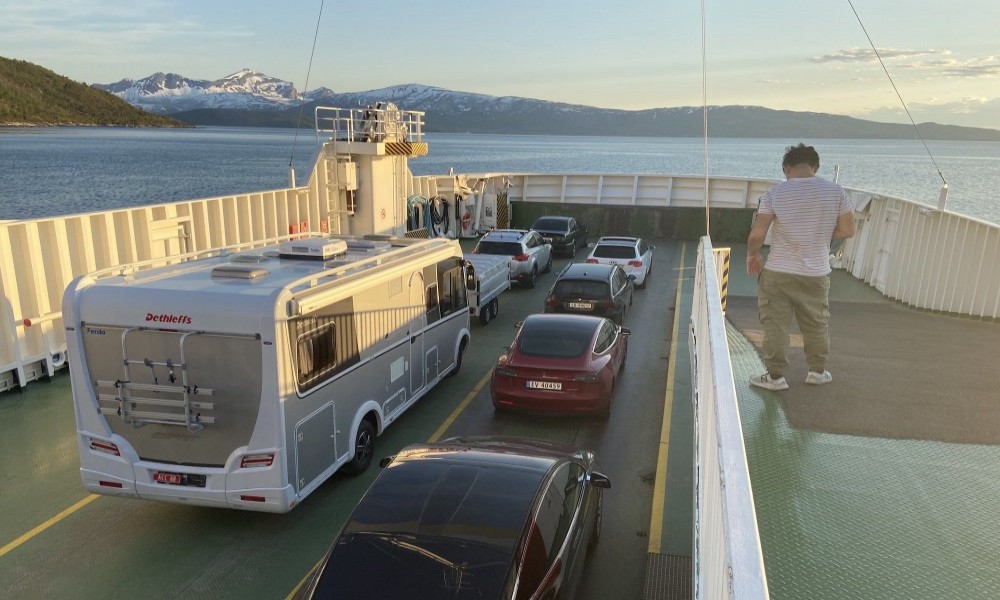Norway’s busiest Arctic ferry routes are set to go electric
The last main E6 connection, from Bognes to Skarberget, is set to go electric by the end of 2022.

By the end of 2022, the last remaining ferry connection along European route E6, Norway’s major north-south route, will operate on batteries, as the country’s transition to a zero-emission transport sector continues.
“This makes it possible to drive without emission from Lindesnes to North Cape,” according to the Norwegian Public Roads Administration. Lindesnes is the country’s southernmost point.
Norway has for years encouraged people to buy electric vehicles by introducing a series of incentives, like no purchase taxes, cheaper or free drive-through toll roads, and reduced ticket prices on ferries.
The ferries themselves are also now turning to battery-power. The world’s first electric car and passenger ferry went into commercial operation in 2015 across a 6-kilometer-wide fjord in Western Norway.
Now, time has come to introduce battery-powered car ferries in Northern Norway. The Bognes-Skarberget ferry route is some 200 kilometers north of the Arctic Circle, a region with polar night and harsh cold-climate conditions during winter.
The 8-kilometer route crosses Tysfjorden and takes about 25 minutes. This ferry is the only remaining ferry connection along European route E6, the main highway between southern- and northern Norway.
Onshore infrastructure at the ferry piers will include fast-chargers, filling up the batteries as cars are driving off and on, making ready for the next departure.
The two other ferry routes across Tysfjorden, Bognes-Lødingen and Drag-Kjøpsvik are also set to go zero-emission, the Public Road Administration said in a press-release.
Contracts are signed with Fjord1 and Torghatten Nord, two of the main operators of ferries and passenger boats in Norway.
“Not long ago, many would say it would not be possible to operate an electric ferry on such a long and demanding stretch, but now we do,” says regional director Bjørn Laksforsmo with the Norwegian Public Roads Administration.
The electric ferries between Bognes and Lødingen will start sailing by January 1, 2024, while the two routes Drag-Kjøpsvik and Bognes-Skarberget will be zero-emission by December 1, 2022.
Norway is likely the world’s first country making it possible to travel all over without any tailpipe emissions. As previously reported by the Barents Observer, eight out of 10 new cars sold in Norway nowadays are full-electric, and the share in the northernmost parts of the country is increasing despite cold weather and long-distance drivings.
Also, electric passenger planes are in the pipe. At Svalbard, the world’s northernmost battery-powered tourist ship sails out of Longyearbyen. Other electrified transport innovations include smaller fishing vessels, snow-mobiles, battery-powered buses and larger transport trucks. All supported by the world’s most comprehensive network of fast chargers.